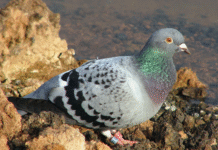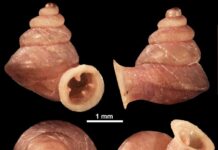THE Food and Agriculture Organization of the United Nations (FAO), the International Fund for Agricultural Development (IFAD) and the World Food Programme (WFP) have jointly expressed solidarity with China and offered support to the country as it battles the coronavirus disease 2019 (COVID-19) outbreak.
In a joint letter to President Xi Jinping, the heads of the three agencies – FAO DirectorGeneral Qu Dongyu, President of IFAD Gilbert Houngbo, and WFP Executive Director David Beasley – paid tribute to the resilience of the Chinese people and praised the efforts made by the country dealing with the emergency.
Describing the outbreak as a “health challenge for China and the rest of the world,” the three Rome-based agencies pledged readiness to provide support, based on their respective areas of expertise, to China’s efforts to alleviate the impact of the virus on the population, particularly in rural areas.
FAO is working closely with the World Health Organization (WHO), the World Organisation for Animal Health (OIE), and the International Atomic Energy Agency (IAEA) through its joint FAO/IAEA Division, to assist member countries and research communities in identifying potential animal hosts of this virus. In particular, FAO has activated an incident coordination group that brings together global, regional and country specialists to assess the situation and ensure coordinated awareness and activities. It is working to ensure the readiness of all national veterinary laboratories to rapidly detect the new virus in animals and animal products destined for human consumption, as well as to thoroughly conduct surveillance of host animals and COVID-19 circulation in the environment, as needed.
FAO together with WHO and OIE, under the concept of the One Health approach has been promoting increased awareness of zoonotic (animal-to-human) diseases and devised best practices in combatting them. FAO also has a long history of cooperation with WHO in reducing food-related risk, and in promoting healthy food production and consumption, including through the Codex Alimentarius – a reference-setting compendium of international food standards, guidelines and codes of practice which is a vital tool in an age of globalized food trade.
“In an emergency like the current novel corona virus outbreak, the most vulnerable countries often suffer the most, in lost lives and livelihoods,” said QU. “FAO’s Hand-in-Hand Initiative focuses on building strong partnerships bringing together donors and recipients and prioritizes assistance to the most vulnerable. This will also enable them to strengthen their resilience in the face of emergencies like this.”
“Building on the 40-year strategic partnership with China to reduce poverty and promote rural development, IFAD will continue to support an inclusive rural transformation by continuing to create economic opportunities for rural families and businesses, especially for those who might be impacted,” Houngbo said. “WFP has been following events closely and we are poised to deploy our expertise in global logistics and other areas as required,” said Beasley.
“We stand fully behind all countries affected by this outbreak, and particularly those which might need additional support in confronting this growing health threat.”

















